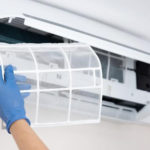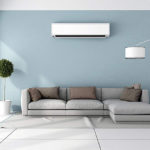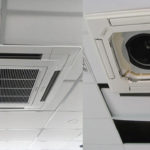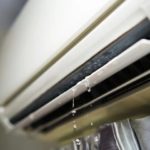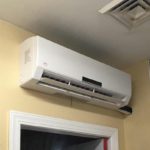Choose the appropriate capacity for the room area
It is extremely important to choose an air conditioner that is suitable for the room area. A small capacity air conditioner will not be able to cool a large room or will have to run at full capacity to cool the room. As a result, the air conditioner will consume more electricity as it has to run continuously and, of course, the electricity bill will increase sharply. On the other hand, using a large capacity air conditioner for a small room will waste energy.
Therefore, when buying an air conditioner, you should ask the salesperson for advice to make the best choice, to save electricity when using it, and to ensure the durability and stability of the machine.
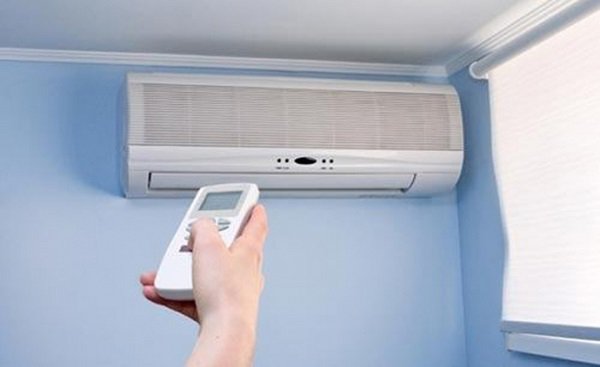
Use air conditioning in conjunction with an electric fan
Turning on the air conditioner and the ceiling fan or the pedestal fan seems to “double the electricity usage.” However, in reality, this is one of the simple yet surprisingly effective measures to cool the room and save electricity.
When combined, the electric fan will help improve the circulation of cold air throughout the room, both cooling it quickly and making it more comfortable. This also means that you don’t need to lower the temperature too much, resulting in less energy consumption. In addition, the fan uses less electricity than the air conditioner, so when both devices are used together, a lot of energy can be saved.
However, you should only use the ceiling fan for about 15-20 minutes when starting the air conditioner, then turn off some fans if the room is already cold to avoid wasting electricity.
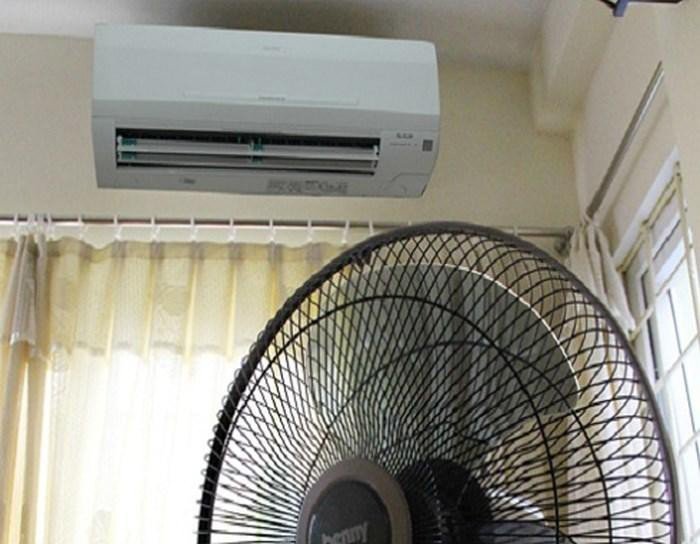
Close all doors tightly
When using the air conditioner, if the doors are open, the cold air will escape, and the outside temperature will affect the room temperature. As a result, the air conditioner will have to work harder and consume a lot more electricity.
Adjust the room temperature properly
Many people have the habit of setting the air conditioner to cool quickly or to a low temperature to quickly enjoy the cool space when they come home from the hot sun. However, this unintentionally causes the air conditioner to run at full capacity, consuming a lot of energy to cool and maintain a low temperature for a long period of time.
Remember that even a small adjustment can make a big difference in your monthly electricity bill. The temperature between 25 and 28 degrees Celsius is the ideal temperature for the air conditioner to operate optimally, consuming less energy while still maintaining a moderate and suitable temperature.
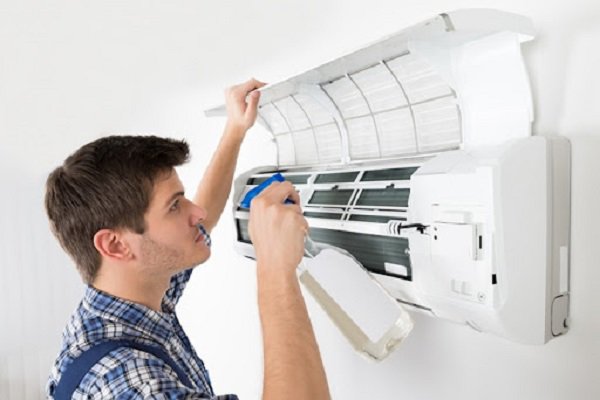
Avoid turning on/off the air conditioner frequently
Many people think that they can save electricity by turning on the air conditioner until the room is cool, then turning it off, and turning it back on when the room gets hot again. However, this method consumes more energy as the air conditioner has to start up multiple times, resulting in faster wear and tear of the machine.
Avoid direct sunlight in the room
It is best to avoid heat exchange with the outside when using an air conditioner. Sunlight can increase the room temperature, so the air conditioner will have to work harder to cool the room. On the contrary, keeping the room shaded (with curtains) can prevent sunlight from entering, avoiding an increase in room temperature. This way, the air conditioner does not have to run continuously, and the energy consumption is not too high.
Maintenance and regular cleaning of the air conditioner
To make the air conditioner work best, it needs regular maintenance and cleaning. In particular, simply cleaning the dust and dirt accumulated in the filter can reduce the operating capacity of the machine by up to 15%, saving a significant amount of electricity.
In addition, any malfunctions or problems during the operation of the air conditioner should be fixed immediately to ensure the optimal performance and energy efficiency of the machine.
According to thoidaiplus
“Strategies for Lowering Electricity Usage When Using Air Conditioners and Air Coolers in Hot Weather”
With the hot summer months on the horizon, many of us are anticipating the need to use our air conditioners more frequently. However, with the extra use comes a higher electricity bill. XANH Electronics has the perfect solution – 10 helpful tips that will ensure you are using your AC more efficiently, and keeping costs down in the process!
























